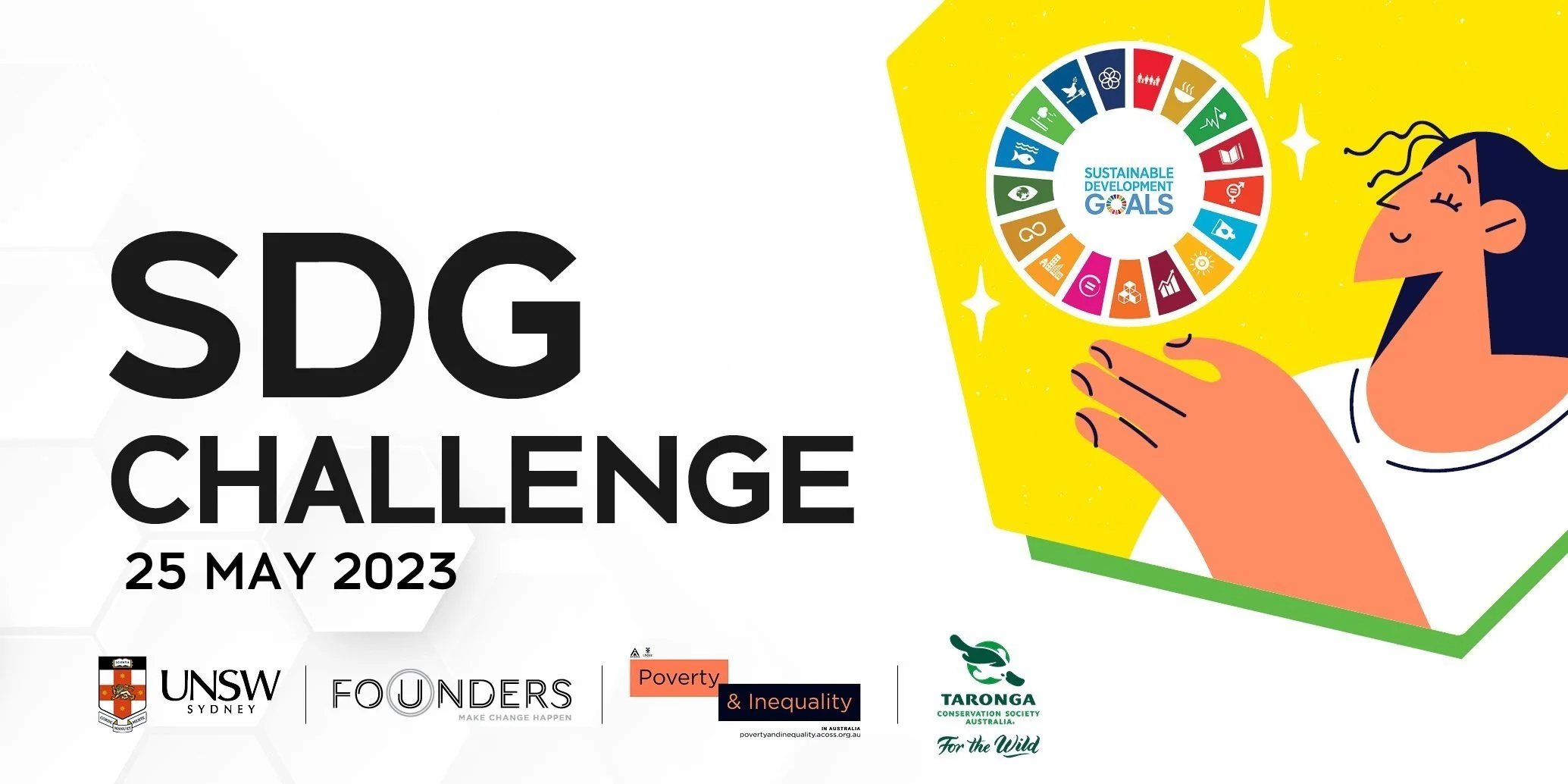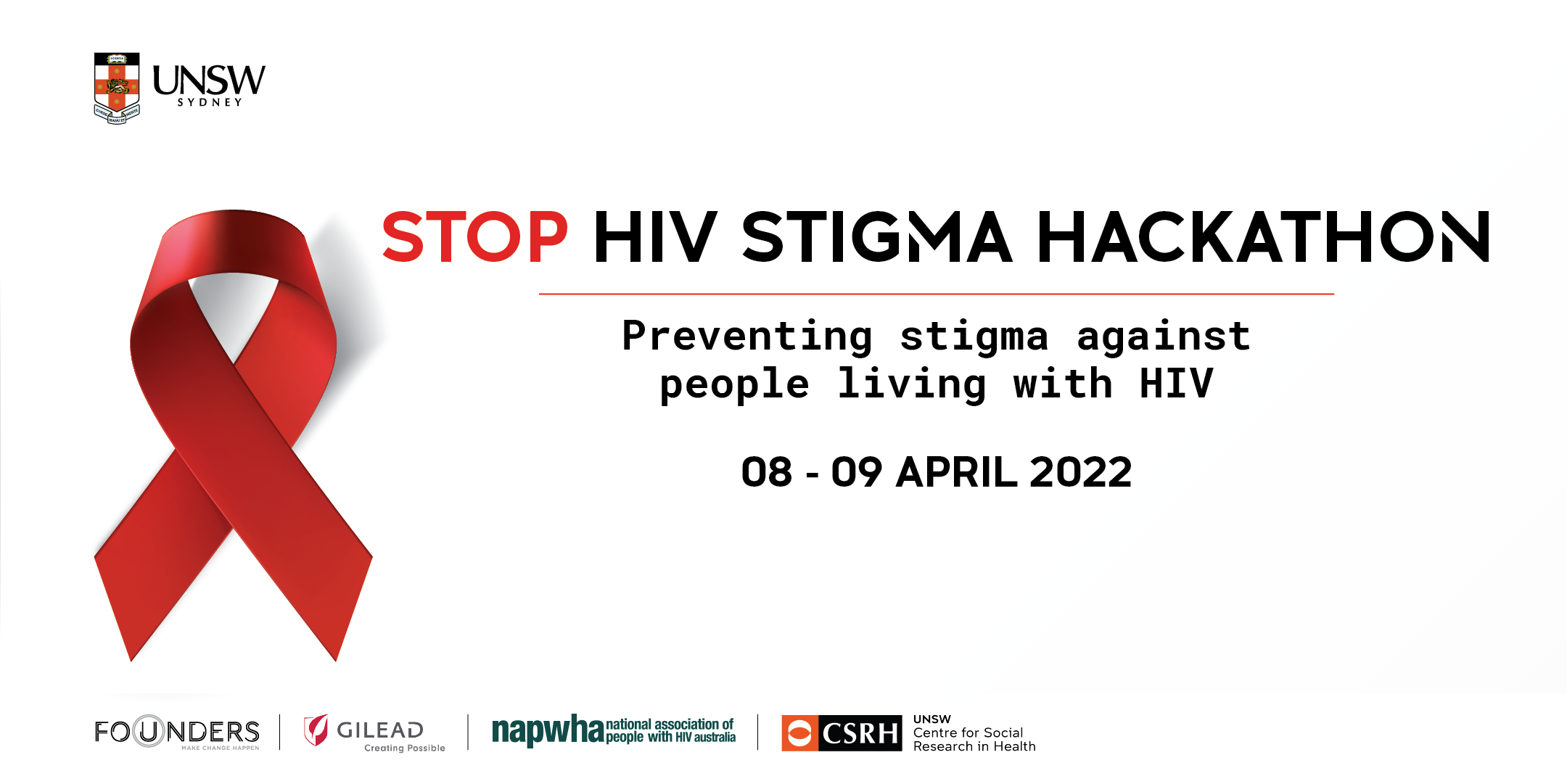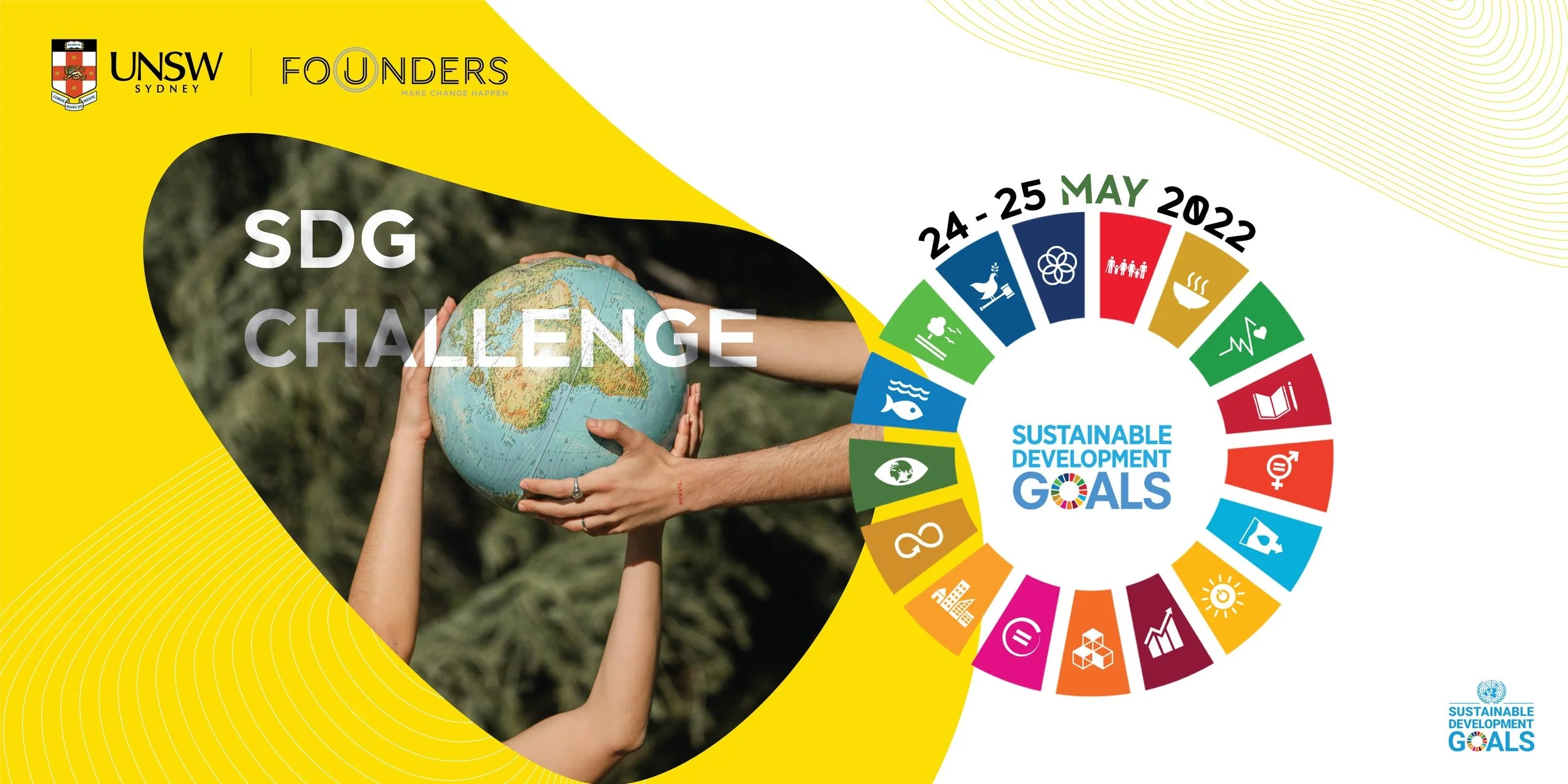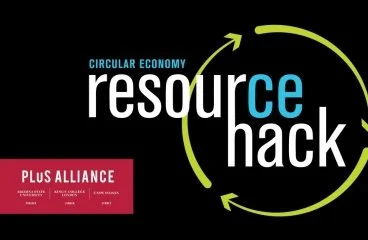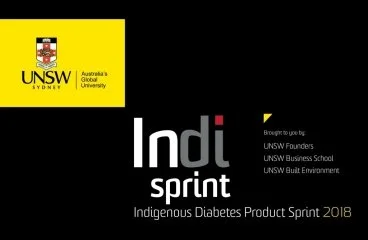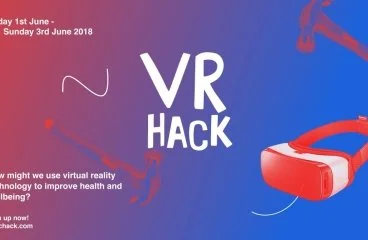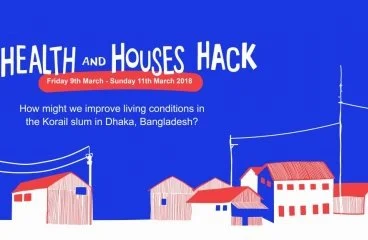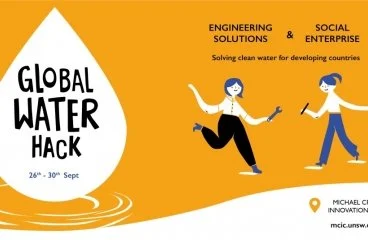Hackathons
Hackathons are competitive and immersive learning experiences where individuals come together to create and pitch solutions to real world problems.
To deliver these experiences we partner with faculties, research centres, organisations and UNSW clubs and societies to bring together passionate problem solvers. Join us and capitalise on your chance to make real impact (and win prizes)!
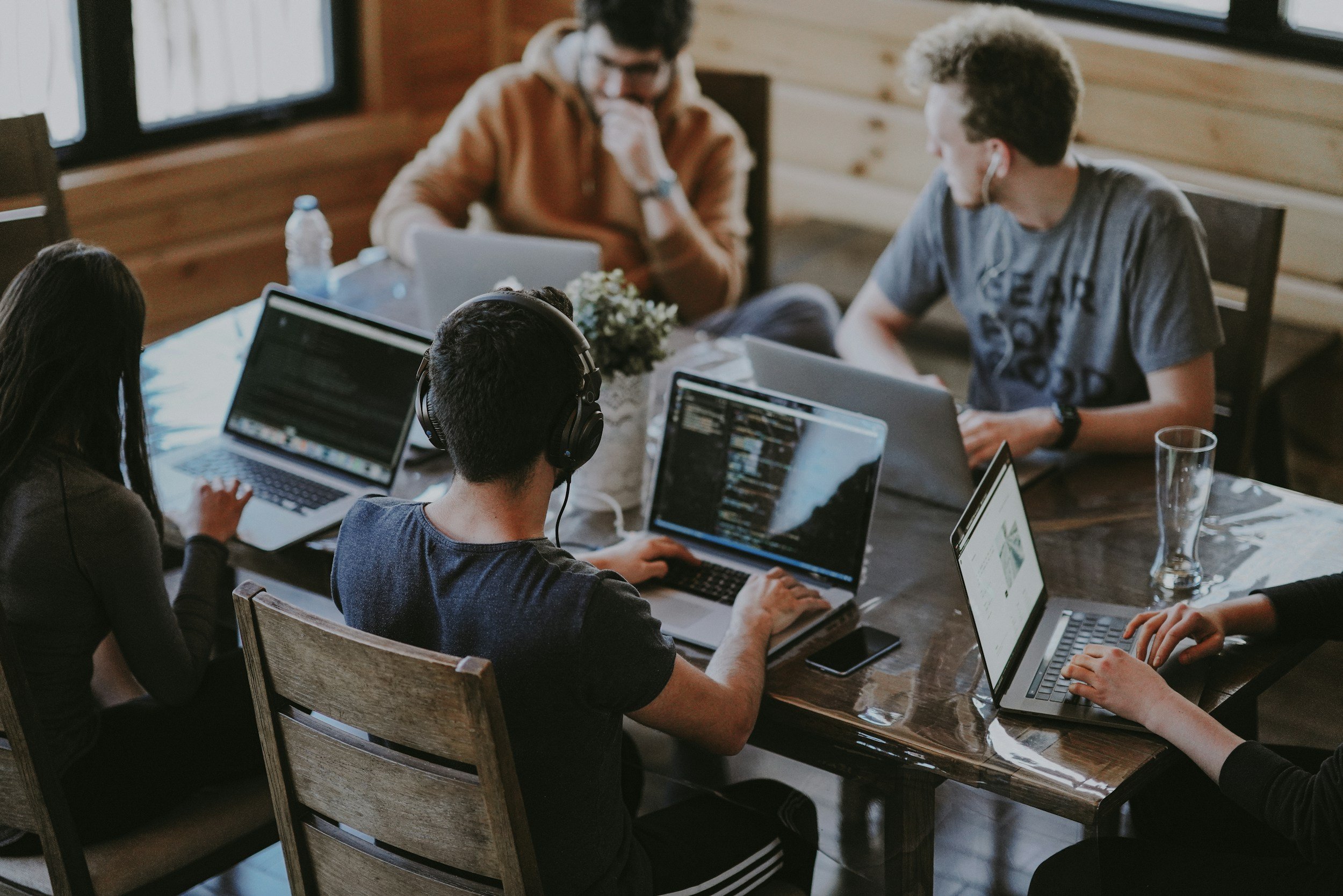

2024 SDG Challenge
2024 SDG Challenge
A thrilling one-day Innovation Challenge that brings together UNSW students and the Poverty & Inequality Partnership to solve real-world sustainability challenges.
Review or watch our past Hackathons
-
![]()
Breath Of Fresh Air Innovation Challenge
In partnership with AstraZeneca, how might we gain fresh perspectives to shape a more hopeful future for lung cancer patients?
-
![Banner for SDG Challenge]()
SDG Challenge 2023
In partnership with Taronga Zoo Conservation Australia and Poverty & inequality Partnership.
-
![Banner for Student Diversity Hackathon - 31th October - Logo's for ARC, UNSW and Founders]()
Student Diversity Hackathon
How might we make our UNSW community more equitable, diverse, and inclusive for students?
-
![Banner for Hack the Pandemic]()
Hack the Pandemic
How might we improve the quality of life for people impacted by COVID?
-
![]()
Stop HIV Stigma Hackathon
UNSW Founders in collaboration with Gilead Sciences, UNSW Centre for Social Research in Health (CSRH) and National Association of People With HIV Australia (NAPWHA) hosted a special 1.5-day event to create innovative solutions to prevent stigma towards PLWH in the healthcare setting.
-
![]()
Circular Economy Resource Hack 2021
How might we transform the way we communicate issues of climate change to diverse audiences in order to create positive action towards the regeneration of systems on individual, local and global scales?
-
![]()
Circular Economy Resource Hack 2020
How might we redesign, rethink, repair and repurpose spaces, places, materials, and systems within cities in order to progress social, natural and economic development?
-
![]()
Circular Economy Resource Hack 2019
How might we re-design products and services in the fashion and textile industry that reduce waste and negative impacts for our planet in order to build economic, natural and social capital?
-
![]()
Health Innovation Hackathon
Identify a problem in modern healthcare that is worth solving, its market size and propose an idea that solves the problem in the hopes of commercialising a product in the market.
-
![]()
Sustainable Urban Agriculture & Food Planning
How might we create low cost, low energy, accessible and sustainable urban agricultural solutions for continuous food production to provide for the growing population of New Delhi?
-
![SDG Challenge 2022 image]()
SDG Challenge 2022
A 1-day challenge event, tackling real-world sustainability challenges that affect our local community. Working on challenges from Sydney Opera House, Taronga Zoo Hatch & Randwick City Council to solve real problems - going from challenge to solution in one day.
-
![]()
EdCon Hack
In partnership with Community Ethereum Development Conference.
-
![]()
Health 10x Hackathon
How might we use low-cost technologies to address healthcare gaps and improve the management of noncommunicable diseases (NCDs) in under-served but emerging markets?
-
![]()
Learning Experience of the Future Hack
How might we design a technological solution to enhance learning and improve the user experience?
-
![]()
Sydney Blockathon
bitfwd community is open to everyone: developers, entrepreneurs, creatives, traders, corporate professionals in education the public on the future of blockchain technology
-
![]()
Resource Hack
How might we re-design products and services that reduces waste and negative impacts for our planet in order to build economic, natural and social capital?
-
![]()
Indi Sprint
How might we draw on Aboriginal and Torres Strait Islander people’s knowledge(s) and experience(s) from a social determinants of health approach together with technology to re-imagine diabetes management?
-
![]()
VR Hack
How might we use Virtual Reality technology to improve Health and Well-being?
-
![]()
Health and Houses Hack
How might we improve the living conditions in one of the poorest areas of Bangladesh?
-
![]()
Global Water Hack
How might we use social enterprise business models to expand access to clean water among rural communities in developing countries?


